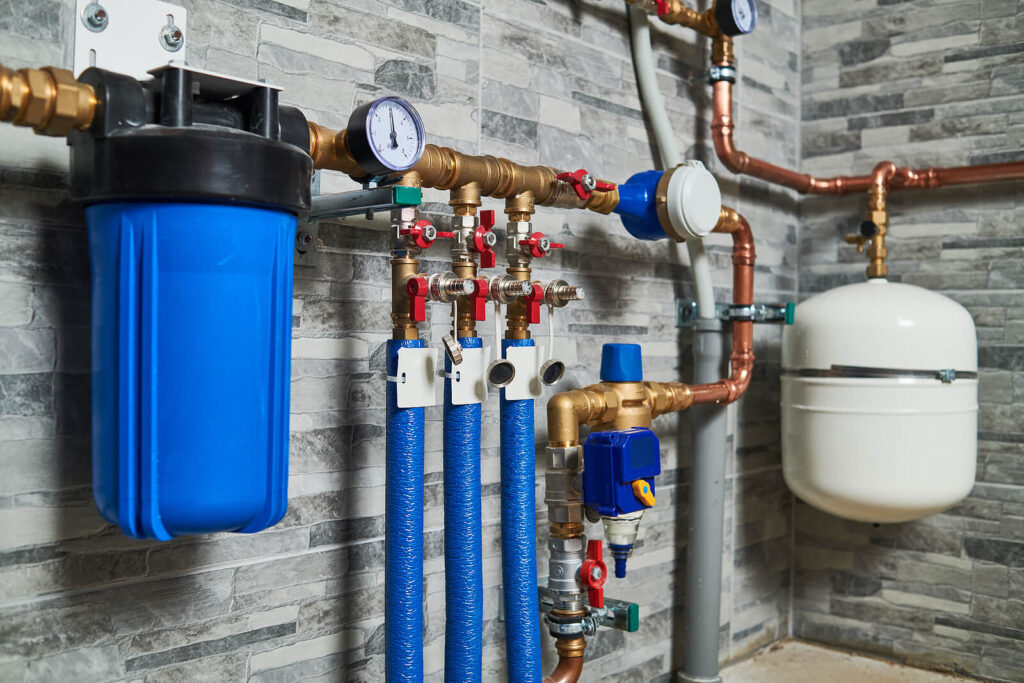Are you curious about the longevity of your home’s plumbing system? From aging pipes to modern materials, this comprehensive guide is your go-to resource for understanding how long plumbing lines last in Mankato, MN. Whether you’re a new homeowner or a long-time resident, uncover the secrets to maintaining and extending the life of your plumbing infrastructure.
Plumbing lines are an integral part of any property, and various factors, including the type of material, maintenance practices, and environmental conditions, influence their longevity.
Types of Plumbing Lines and Their Lifespan
Understanding plumbing line types and lifespans is crucial for homeowners to make informed home maintenance and renovation decisions. Understanding the various types of plumbing lines and their lifespans empowers homeowners to take proactive measures to maintain their plumbing systems, avoid unexpected disruptions, and plan for the long-term integrity of their homes. This knowledge is essential for ensuring the plumbing system’s efficient functioning and the property’s overall well-being.
- Copper Plumbing Lines: Copper plumbing is renowned for its long-lasting and durable nature. On average, it can endure for 50 to 70 years. It exhibits corrosion resistance, and plumbers favor it for its dependable performance.
- PVC Plumbing Lines: Plumbers use Polyvinyl chloride (PVC) plumbing lines in drainage and vent systems. PVC lines can endure for 25 to 40 years when installed and maintained correctly. Their resistance to chemical and electrolytic corrosion plays a significant role in their long lifespan.
- PEX Plumbing Lines: PEX (cross-linked polyethylene) plumbing pipes have become increasingly popular due to their flexibility and ease of installation. When properly installed, PEX pipes can last 40 to 50 years. They are also less prone to freezing and bursting, making them well-suited for cold climates.
Factors Influencing Plumbing Line Longevity
Homeowners need to understand the factors that influence plumbing line longevity to effectively maintain their home’s plumbing system and prevent potential issues in the future. Knowing the factors affecting plumbing line longevity can guide homeowners toward proper maintenance and care.
By being aware of the factors that impact plumbing line longevity, homeowners can take proactive steps to ensure the efficient functioning of their plumbing systems and avoid costly repairs or replacements down the line.
Here are some common factors that most homeowners deal with concerning the life of their plumbing lines.
- Water Quality: High mineral content in hard water can damage plumbing lines. Water quality testing and treatment are ways to prevent this.
- Usage Patterns: Frequent temperature changes and high water pressure can shorten the lifespan of plumbing lines. Educating household members about responsible water usage can help extend their lifespan.
- Maintenance Practices: Regular maintenance by professional plumbers like Babe Plumbing Chaska is crucial for preserving plumbing lines’ integrity. It helps to detect leaks and make timely repairs, extending the lifespan of plumbing systems.
- External Factors: Temperature and soil conditions can affect plumbing stability. Insulation and protection from extreme temperatures can prevent premature deterioration.
Everyday Bad Habits and Their Impact
Understanding common bad habits and their impact is crucial for maintaining the durability of these essential systems. Plumbing lines should last many years, but certain habits can significantly affect longevity. It’s vital to be aware of how everyday actions can impact the reliability of plumbing systems and take proactive measures to avoid potential issues.
- Ignoring Minor Leaks: Neglecting minor leaks can lead to water damage and premature aging of plumbing lines. Promptly addressing leaks and seeking professional assistance is crucial for maintaining the integrity of plumbing systems.
- Improper Chemical Usage: Harsh chemical drain cleaners can corrode and weaken plumbing lines over time. Opting for environmentally friendly and non-corrosive alternatives can safeguard plumbing line longevity.
- Overloading Drains: Disposing of non-biodegradable materials and grease down drains can obstruct and damage plumbing lines. Educating household members about proper waste disposal practices is essential for preserving the plumbing system’s health.
Importance of Plumbing Inspections

Plumbing inspections play a crucial role in maintaining the safety, functionality, and efficiency of residential and commercial properties. Regular inspections help identify potential issues, prevent costly repairs, and ensure compliance with building codes and regulations.
Plumbing Industry Statistics on Inspections
Inspections are significant in the plumbing industry, as they are crucial in maintaining the smooth operation of residential and business facilities. Here are some detailed statistics related to the importance of inspections in the plumbing industry:
- Plumbing Inspections Prolong Plumbing Lifespan: Plumbing inspections are essential for prolonging the lifespan of plumbing systems, ensuring their smooth operation and longevity.
- Impact on Water Conservation: Professional leak detection through inspections can save up to 10,000 gallons of water yearly on average, contributing significantly to water conservation efforts.
- Financial Impact: According to the EPA, waterSense-labeled products have saved Americans around 7.5 billion gallons of water and $171 billion in water and energy bills.
These statistics underscore the pivotal role inspections play in ensuring the efficient operation, longevity, and sustainability of plumbing systems, making them indispensable to the plumbing industry. For business owners and homeowners, plumbing inspections provide many benefits.
Here are a few of the benefits of inspections:
- Early Issue Detection: Babe Plumbing Chaska provides plumbing inspections to detect issues early and prevent costly repairs and water damage.
- Peace of Mind for Homeowners: Regular plumbing inspections give homeowners peace of mind and help them make informed maintenance decisions with transparent reports and expert recommendations.
- Compliance With Building Codes: Plumbing inspections ensure building code compliance, prevent hazards, and maintain system efficiency.
By examining the condition of pipes, fixtures, and systems, plumbing inspections contribute to the overall well-being of a building and its occupants.
Final Thoughts
Understanding the lifespan of plumbing lines and the factors influencing their longevity empowers homeowners to take proactive measures to preserve the functionality of their plumbing systems. By prioritizing proper maintenance, responsible usage, and professional inspections, homeowners in Mankato can ensure the enduring performance of their plumbing lines. With the expertise of Babe Plumbing in Chaska, homeowners can confidently safeguard their plumbing systems for years to come.
Contact Babe Plumbing for expert plumbing services and inspections to ensure the longevity and efficiency of your home’s plumbing infrastructure.






